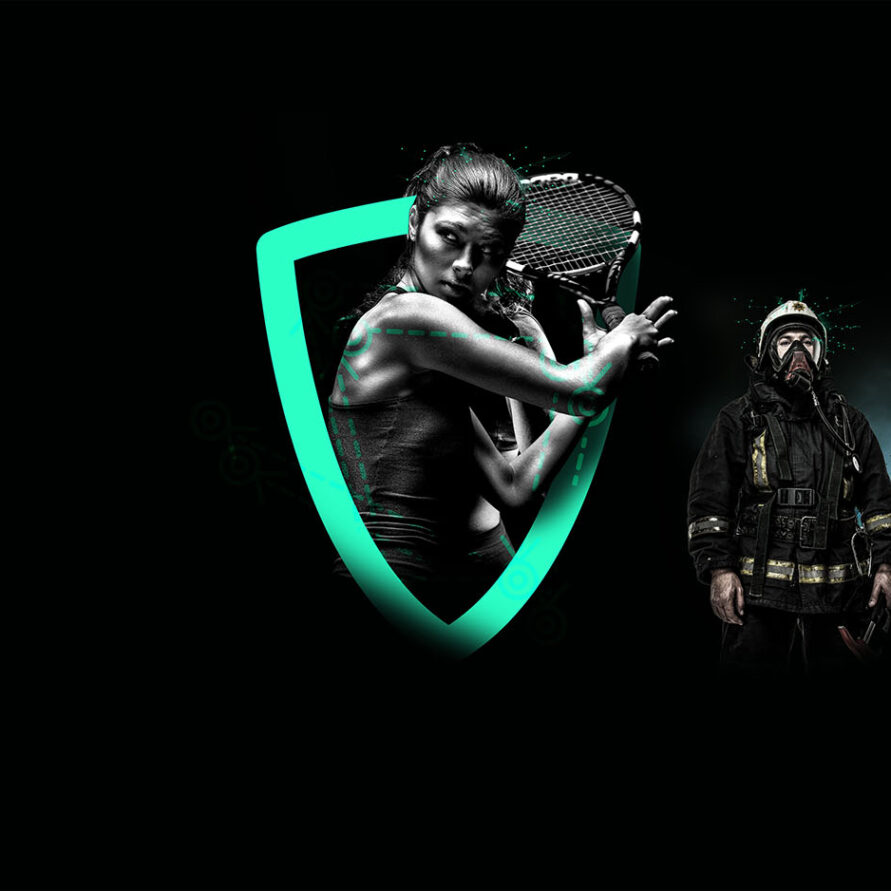
Research & Development
Scientific expertise, the foundation of our activity


Research and innovation is something we grew up with, and love. Nearly half of the team decided to extend the pleasure of their studies up to the PhD level. So we launched our own R&D activity: Flowtide.
What for ? To test new methods, discover new tools or open new markets... To offer you the best solution to your needs, using our research capacity, our knowledge in neurosciences, neuroergonomics, and more generally in scientific experimentation.
CII certification
Our area of expertise is to evaluate cognition through a psychophysiological approach: neuroergonomics. For instance, we measure cardiac activity by electrocardiogram, perspiration by electrodermal activity, or visual attention by eye tracking (oculometry), to have a better understanding of human cognition.
Right now, we are working on taking our user tests further, improving the performances of professional athletes, or carrying out a more advanced analysis of our user feedbacks (not necessarily in that order).
The Ministry of Industry also recognizes our capacity to lead research and innovation actions, by granting us the status of innovation private organization and therefore enabling our clients to benefit from the tax credit for innovation expenditure (when applicable).
We are published in major international conferences and journals.
Our research work is only valuable if presented to the greatest researchers of the field. Here are a few examples of our publications.
Two groups (15 experts in time-pressured decision making and 13 novices) completed 3 MATB-II sub-tasks (tracking, monitoring, and resource management tasks). Biosignals accounting for autonomic nervous system activity were measured continuously, as objective markers of cognition.
Confrontation between performance data and (objective and subjective) cognitive markers reported contrasting perspectives regarding the exploitation of MATB-II as a pertinent tool to insure controlled experimental conditions in the context of cognitive control characterization.
Science Breakfasts
We are organizing what we call "Science Breakfasts" on a regular basis, to discuss research topics with the whole team, and see how they could help us improve our service.
jul. 2022
"Liminal Thinking" by Dave Gray
apr. 2021
Let's talk about Dark mode : theoretical knowledge and practical application
jan. 2021
Best practice for video capture during user interviews
may. 2020
Stress management strategy: a few tips to handle public speaking
apr. 2020
Design Fiction : back to the future
mar. 2020
Our project of developing an UX-o-meter: progress report
jul. 2019
Measurement of the users' perception and expectations in the field: application to pedestrian planning
jan. 2019
Treejack and Optimalsort : AI evaluation tools (to tidy your room, and more)
dec. 2018
Data-driven personas : factor analysis approach and debate on the benefits and drawbacks
dec. 2018
Focus group applied to storybranding
nov. 2018
Book presentation on "Building a storybrand": what is it about and how to use it?
jun. 2018
VR training and strengthening of heart-brain interactions in professional female rugby players
jun. 2018
UX stats for dummies (don't run away screaming!)
oct. 2018
Electrodermal activity: How to cheat a lie detector? (and other more serious uses)
sep. 2018
Eyetracking: How does it work, what is it for?
may. 2018
Developing autonomous vehicles through a user-centered approach
jan. 2018
Flowtide R&D: Humans at the heart of innovation
nov. 2017
Ethics in neurosciences, for a UX design respectful of users
oct. 2017
Let's defuse beliefs of emotional measurements in UX Research
sep. 2017

